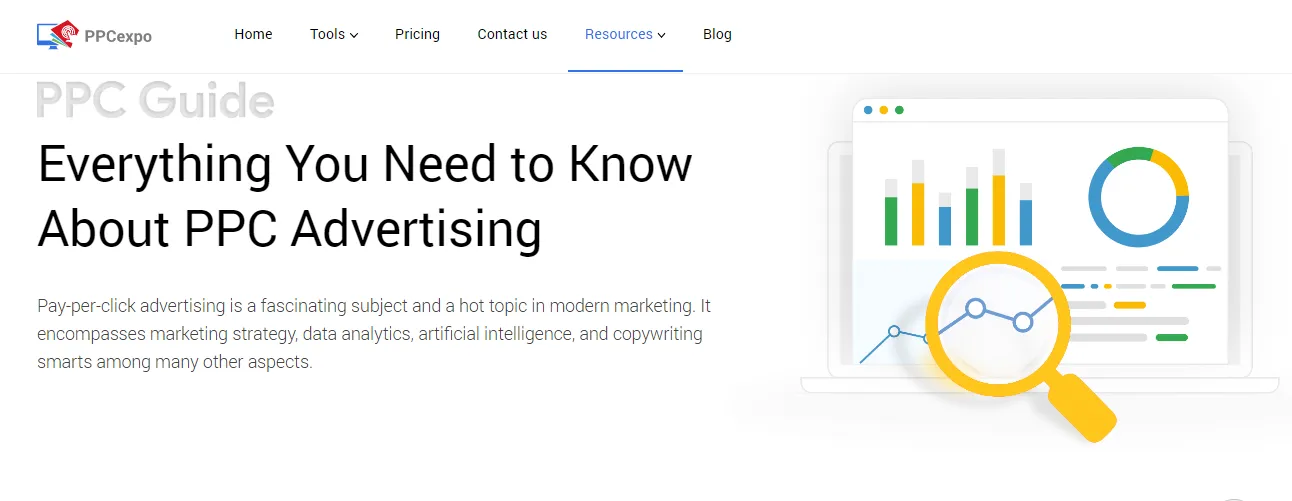PPC budget plays a crucial role in the overall performance of the paid advertising campaign. Google Ads advertisers allocate hundreds of thousands of dollars to PPC, expecting to double the money via advertising. There are several compelling stories about the advertisers who managed to sky rocket their ROI with pay per click and dominate the results.
This leads to a very common perception, ‘the more budget you invest in PPC; the better your results.’ However, a big budget alone can’t guarantee you results. There are many other factors that decide the success of your PPC campaign.
Furthermore, if you are just starting out with PPC, you might have a tight budget and increasing the budget isn’t a feasible option at this stage. But, a low budget shouldn’t keep you from reaping the benefits of paid advertising. If you pay attention to the important factors, you can win the PPC game with a small budget too! Read on to know how to start a PPC campaign with a low budget.
**Set The Maximum Daily PPC Budget
**
Before you start creating an Ad campaign, take time to think about the results and build realistic expectations. Since yours is a low-budget campaign, expecting $10,000 profit overnight will only lead you to cancel the campaign soon.
Start with the upper limit of the daily low budget you can afford to spend. Not sure about the daily Ad spend? Simply decide how much you are willing to spend in a month, and calculate the daily budget.
After you have decided the budget, have a look at the common data to get an idea of the max CPC a click will cost. If your daily budget seems too small, adjust the budget slightly and study the data again. This way, you will be able to estimate your daily budget.
**Keep Your Ad Campaign Highly Focused
**
Keeping the PPC Ad campaigns focused means you need to be specific. In order to keep the campaigns focused, there are several things to keep in mind-
**Choose Single Ad Format At A Time
**
If you choose multiple search network options, and targeting methods at a time, you will end up spreading the budget too thin. Moreover, it would be hard to gather data on the search terms or targeting methods that are giving results. As a result, you won’t be able to decide how to optimize the campaign. So, stick to one Ad format initially.
**Be Precise About Ad Targeting
**
As you are on low budget, experimenting becomes less of an option. You need to look for ways to target the PPC Ads more effectively. If you are using Google Ads, take advantage of Google Keyword Planner to find keywords with high commercial intent, which are known to convert.
While these keywords often cost more, they will likely generate profit provided your landing pages and content is optimized. If you still go with low-value keywords, you will pay more because you need more clicks to achieve results. Also, create a negative keyword list and set it to ‘exact match’ so that you bid on the selected keywords only.
**Don’t Pick Too Many Keywords
**
You need to stay focused with your campaign; thus, picking five to seven high-intent keywords is good enough to see results. You can use competitive analysis to get an idea of what keywords your competitors are using and see what type of Ads appear for those keywords. Also, look for high volume and low competition keywords to stay higher and to connect with your targeted audience. If there’s a keyword that has high search intent and low competition, you can use them to make budget-friendly convrsation.
**Be Specific About The Number Of Ads Too
**
It’s a great idea to create multiple Ads and study the data to know what works and what not. However, doing such things with a minimum budget will provide you with no meaningful data. Thus, looking at your competitors’ Ad copy and understanding what’s making their Ads work is a better approach.
After researching, think if you can create a similar Ad that triggers audience and drive results. Or, you can consider remarketing the Ads to the leads who already have some exposure to your products and services.
**Improve The Ad’s Quality Score
**
The Ad’s quality score affects both CPC and conversion rate. Moreover, Quality Score is of great importance in Google’s eyes and your Ad’s position in the SERP also depends on it. Thus, if you are on a low budget and want to reduce the CPC, focus on improving the QS by the following methods-
● Create engaging, relevant Ads for your target audience.
● Keep the Ad groups well-organized and structured.
● Pick the right keywords.
● Write an effective Ad copy.
● Optimize the landing pages and align them with your Ads.
**Use small Ad groups:
**
Small ad groups with fewer keywords are the best way to create a low budget PPC campaign. This will help you run a tight and focused campaign with the keywords that are relevant to the ad and your services. Tighter keywords also mean that Google will position the ranking of your ad and will also increase your impression share.
**Conclusion
**
When it comes to starting a PPC campaign, low budget seems like a problem. But, when you know how to use your budget smartly, you can make the most out of it. As long as you are closely monitoring the data to streamline your campaigns, getting your PPC journey started isn’t an issue at all. Use smart keyword research strategy, improve the quality score, and use the best remarketing tactics to get a good ROI out of your Ad spend. So, start your PPC campaign with these tips and find out what’s possible to achieve with a low budget.
#ppc #ppcguide #ppcmarketing #payperclick
